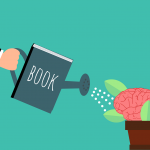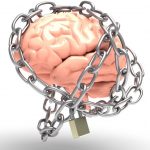Our beliefs — especially about ourselves and our abilities — have a profound impact on every aspect of our lives.
A 21 year study involving 60 000 people found that people’s judgements about their fitness directly influenced their body’s response to exercise. Those who believed they were fitter than the average person — regardless of the amount or type of exercise they did — were 71% more likely to be alive at the end of the study than those who didn’t see themselves as being fit, even if they did plenty of exercise. In other words, perceived fitness was a better predictor of longevity than actual fitness. Of course they had to be doing some exercise for this to bear out. You cannot simply think yourself fit while doing nothing more than playing with your TV remote control.
Another study of nearly 30 000 adults examined the effects of chronic stress. People who experienced high levels of stress but did NOT view stress as harmful, had better health, less depression and greater life satisfaction than people with the same amount of stress who viewed their stress as detrimental. The more a person described stress as ‘character-building’ and ‘life-enhancing in the long run’, the more energy and fewer health problems they had.
How can this be?
Join me for a free virtual presentation on Tuesday 8th March 2022 at 5pm Qld time, 6pm Sydney/Melbourne time and 3pm Perth time to find out. The event will be hosted by the National Institute of Integrative Medicine (NIIM) to celebrate International Women’s Day (IWD).
This will NOT be a pep talk about positive thinking. I’ll be presenting a masterclass on proactive thinking. Positive thinking doesn’t work unless we already believe what we’re telling ourselves. Positive thinking can actually be damaging if we deny or suppress our true feelings. The secret to success lies in learning how to shift our perspective to rewire our brain for optimal health and performance.
Click here to register.
Please forward this Health-e-Byte to anyone who would like to know the latest discoveries in neuroscience and how this impacts our physical and mental health.


